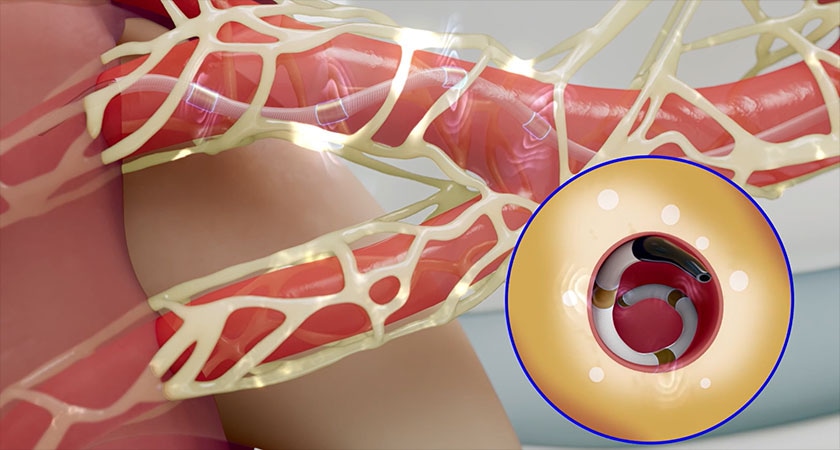FDA Panel Split on Efficacy of Spyral Renal Denervation
Core Concepts
The Symplicity Spyral Renal Denervation System's efficacy is debated by the FDA panel, with concerns about its effectiveness outweighing its benefits.
Abstract
The FDA's Circulatory System Devices Panel voted on the safety and efficacy of the Symplicity Spyral Renal Denervation System by Medtronic. The panel was split on the device's efficacy, with concerns about whether its benefits outweigh the risks. The device uses radiofrequency energy to denervate renal arteries for patients with uncontrolled hypertension. Studies showed mixed results, with varying effectiveness in reducing blood pressure. Panel members had differing opinions on the device's efficacy, with some emphasizing the need for more selective indications and additional data to support its use.
FDA Panel Split on Efficacy of Spyral Renal Denervation
Stats
The panel voted 13 to 0 that the Symplicity Spyral Renal Denervation System is safe.
The panel voted 7 to 6 that the system is effective.
The panel voted 6 to 6 that the benefits outweigh the risks.
Quotes
"We appreciate the robust conversation that occurred prior to the vote." - Jason Weidman, Medtronic
"The totality of the evidence demonstrated that there is a benefit with the SPYRAL RDN catheter." - David Kandzari, Piedmont Heart Institute
Key Insights Distilled From
by Fran Lowry at www.medscape.com 08-24-2023
https://www.medscape.com/viewarticle/995800
Deeper Inquiries
How might the efficacy of the Symplicity Spyral Renal Denervation System be further validated?
To further validate the efficacy of the Symplicity Spyral Renal Denervation System, additional randomized controlled trials (RCTs) could be conducted. These trials should focus on a larger patient population with diverse demographics to ensure generalizability of the results. Long-term follow-up studies beyond the current 3 to 6-month endpoints could provide a more comprehensive understanding of the device's effectiveness over time. Moreover, conducting comparative effectiveness research against other treatment modalities for hypertension could help establish the relative benefits of the Spyral system. By incorporating more robust study designs, longer follow-up periods, and comparative analyses, the efficacy of the device can be more thoroughly validated.
What are the potential implications of approving a device with split opinions on efficacy?
Approving a medical device with split opinions on efficacy can have several implications. From a regulatory standpoint, it may lead to challenges in determining appropriate labeling and indications for use, as there is disagreement among experts regarding the device's effectiveness. This could result in confusion among healthcare providers and patients regarding the appropriate patient population for which the device is most beneficial. Additionally, post-market surveillance and monitoring may be intensified to assess real-world outcomes and ensure patient safety in light of the differing opinions on efficacy. Furthermore, reimbursement decisions by payers may be influenced by the divided opinions on efficacy, potentially impacting patient access to the device. Overall, approving a device with split opinions on efficacy underscores the importance of continued research, monitoring, and communication among stakeholders to optimize patient outcomes.
How can patient selection criteria be improved to maximize the benefits of renal denervation procedures?
Patient selection criteria for renal denervation procedures can be improved by incorporating personalized medicine approaches and leveraging advanced diagnostic tools. Utilizing predictive modeling based on patient characteristics, comorbidities, and biomarkers can help identify individuals who are most likely to benefit from the procedure. Implementing risk prediction algorithms that consider both the potential benefits and risks of renal denervation can aid in selecting patients with the highest likelihood of positive outcomes. Furthermore, conducting prospective studies to validate and refine patient selection criteria based on real-world data can enhance the accuracy of identifying suitable candidates for renal denervation. Collaborating with multidisciplinary teams comprising cardiologists, nephrologists, and hypertension specialists can also contribute to a comprehensive evaluation of patients and ensure that those who stand to gain the most from the procedure are selected. By refining patient selection criteria through personalized approaches, the benefits of renal denervation procedures can be maximized while minimizing potential risks.
0
More on Healthcare
